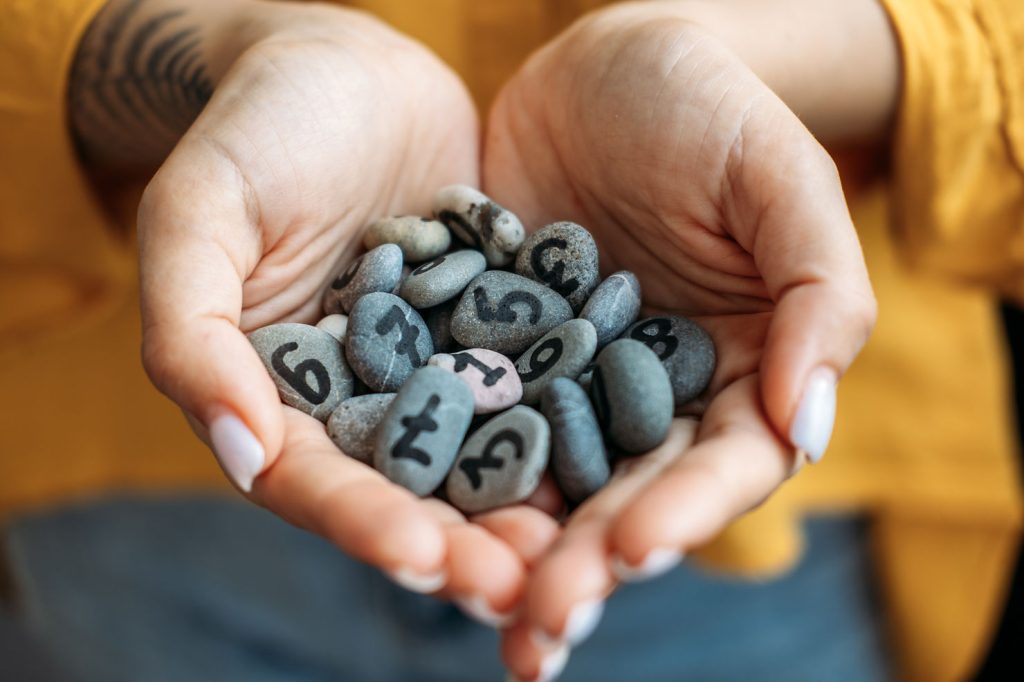
In Montessori, formal math instruction doesn’t start until a child is at least four years old. This time frame has to do with the sensitive period for math (which is between four and seven years of age), but it also gives children ample time to develop pre-mathematic skills.
In this blog post, we’ll explore three essential skills that prepare a child for math learning plus do-at-home activities to aid your child’s development.

Skill One: Focus
“Focus” and “preschooler” are not often words that go together, but my time as a Montessori Guide has shown me that even a three year old is capable of deep concentration and focused effort. Focus is absolutely a learned skill- it is something that develops with practice, lots and lots of practice.
So, how do you help your child develop focus? The Montessori classroom has many interesting and engaging activities that catch a hold the attention of young children (table scrubbing, anyone?) and while these activities are wonderful, you can absolutely help your child develop focus without them. The key is to give your child a chance to play… alone.
This is easier for some children than others. If your child is someone who wants you next to them every second of every day, try this strategy: once your child is engaged in an activity (like painting or playing with a toy), excuse yourself for a quick minute. Something along the lines of, “oh, I left my phone in the kitchen, I’ll be right back!” works great. Whatever your excuse, keep it short and make sure you come right back. Over the next couple of days and weeks, gradually extend the amount of time you are away on your “errands” until your child can play happily for ten to fifteen minutes by themselves- this is concentration!
Skill Two: Fine Motor Skills
Most people know that fine motor skills are important for writing, but what about math? The answer- absolutely! Especially in Montessori, where children touch and manipulate small objects, having control and finger dexterity is essential.
There are lots of articles and activities floating around the internet about how to develop fine motor skills. Of course these specialized activities work, but practicing fine motor skills doesn’t need to be complicated. Instead, consider engaging your children in any of the following fun, low-prep activities:
Skill Three: Differentiation
“Differentiation” means the ability to tell things apart. We can visually distinguish between colors (blue and red are different), smell the difference between a rose and vinegar, and feel the difference between a silk shirt and sandpaper. In Montessori, we have a special class of activities called “sensorial” that address and develop a child’s differentiation skills, but any activity that has your child sort or order objects is a great way to practice this skill.
If you’re interested in learning more about the sensorial works and differential, check back next week- I’ll share some of my favorites as well as some easy ways to play at home.